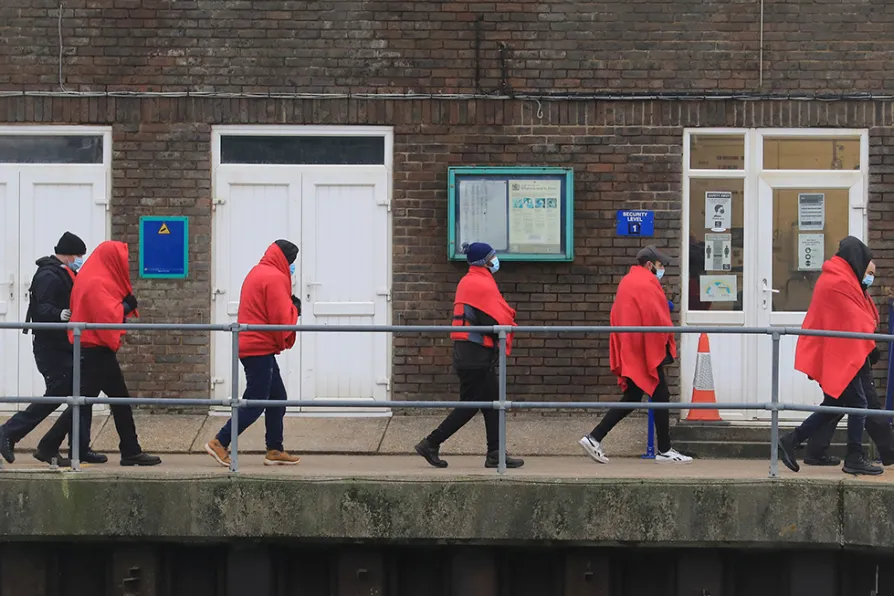Research on media coverage of migration reveals ‘concerning tendency’ of journalists to stereotype migrants

 A group of people thought to be migrants are brought in to Dover, Kent, by Border Force officers
A group of people thought to be migrants are brought in to Dover, Kent, by Border Force officers
NEW research on media coverage of migration during the pandemic has revealed a “concerning tendency” by journalists to portray migrants as either “threats” or “heroes.”
The research by Migrant Voice, an organisation focused on allowing migrants to have their say in the media, is the first major probe into British news coverage of migration after Covid-19.
It analyses coverage by nine online platforms – The Sun, The Mail, The Independent, The Guardian, The Express, The Mirror, The Telegraph, the BBC and ITV – during the early stages of the pandemic.
Similar stories

Detailing the deluge of delusion and dishonesty pushed by the pro-war camp, IAN SINCLAIR identifies four key tactics corporate journalists use to confuse audiences and suppress opposition to the proxy war in the east

Labour told to ‘immediately implement safe passage to Britain for refugees’ after three more people drown in the Channel












